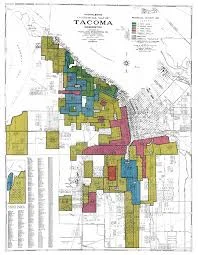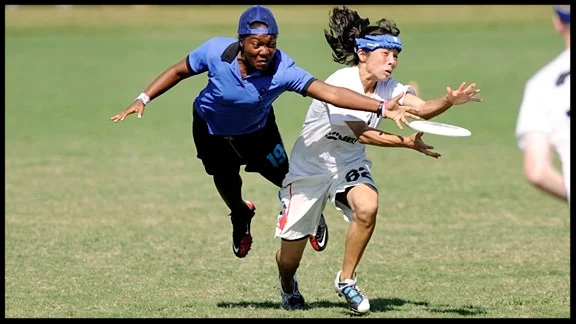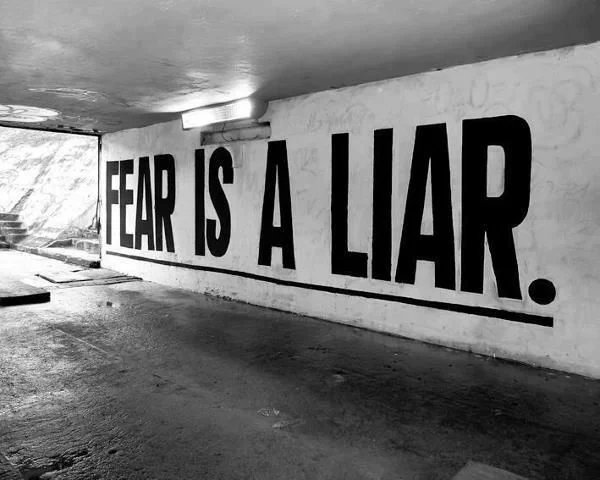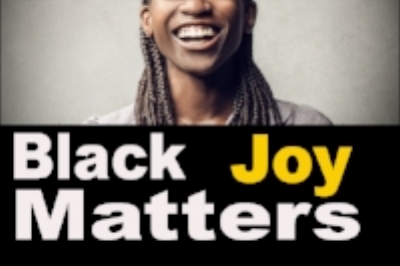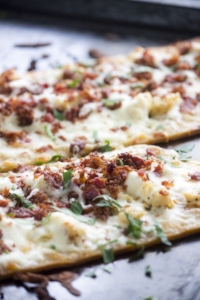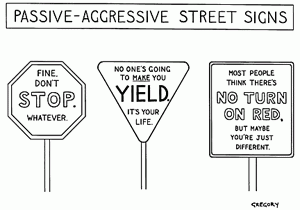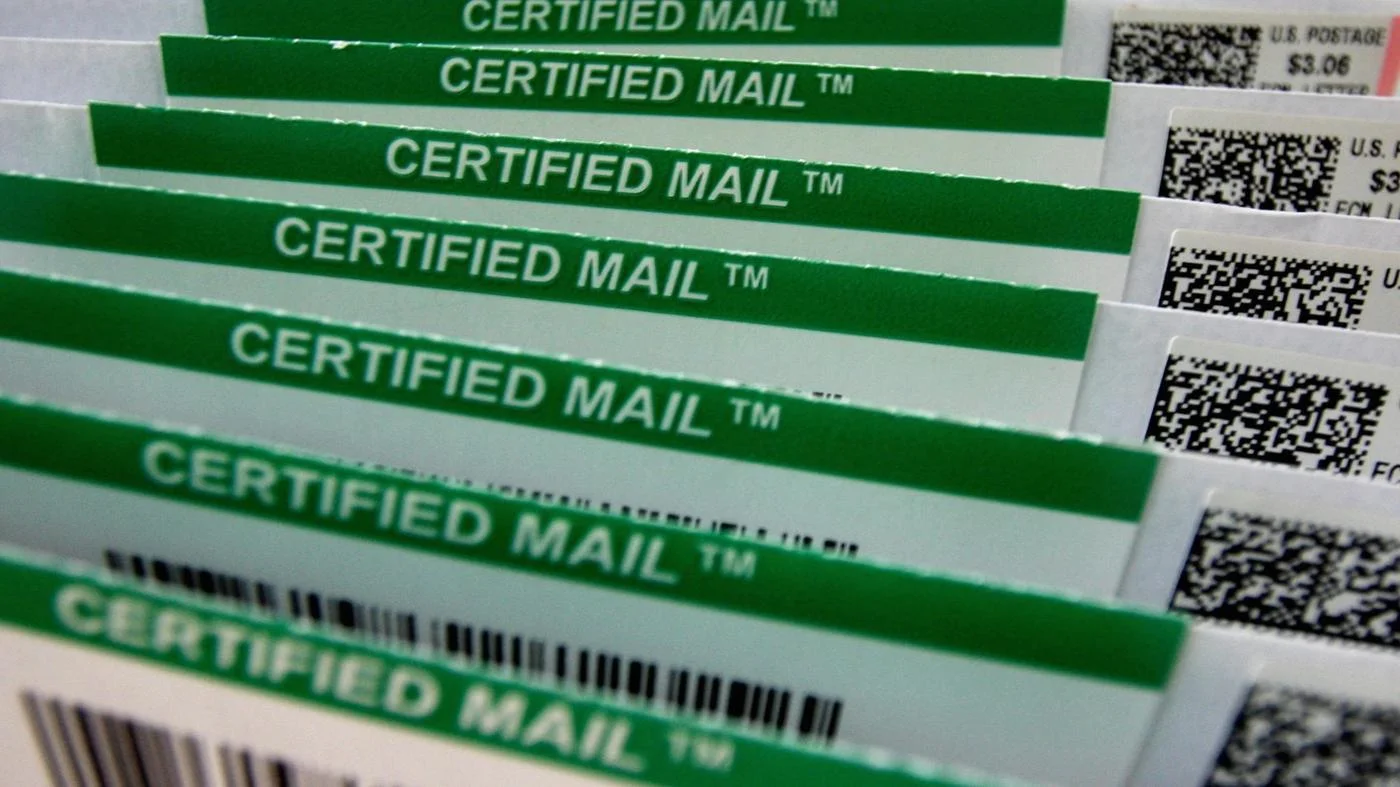Ep. 21: Share the Stage, Hand over the Mic: An Interview with the National Teacher of the Year
EQ: Who is the NTOY and what’s her deal?
Guest: Mandy Manning, 2018 WA STOY and National Teacher of the Year
Mandy Manning teaches English and math to refugee and immigrant students in the Newcomer Center at Ferris High School in Spokane, Washington, where she is her students' first teacher once they arrive in the U.S. This bio is lit
Mandy answers weird questions such as “what’s your favorite degree?” to “how does being NSTOY provide you a platform for your advocacy work or to speak about social justice, equity, or more serious things?” and “how do you see yourself as a white lady doing this work with mostly black and brown students--how to keep the ‘White Savior’ complex in check?”
Mandy elaborates on why it's important to think at a systems level and why our schools need to meet the needs of the specific community they serve.
Interesting links to keep your basicness at bay:
- WA State Teacher of Year Program
- National Teacher of the Year Program
- Spokane Public Schools Newcomer Center
- The Japan Exchange Teaching (JET) Program
- “Make the Most of Your World” Peace Corps
- “25 Things You Probably Didn’t Know about Armenia”
- Trump Told to Take Care with His Language on Immigrants
- Teacher of the Year Delivers letters from Refugee & Immigrant students to President Trump
Guilty Favsies:
- Hope--Flair pens or fancy gel pens from Japan, Korea, or Hong Kong (Ketchup, Silver Swan Soy Sauce; mangoes)
- Annie: Protein Powder
- Mandy: Sneaking out for coffee during planning period
Do Your Fudging Homework:
- Mandy: leave your house; go meet your neighbor--self awareness to become more culturally competent; what impacting your view; get knowledge
- Hope: Born a Crime by Trevor Noah
Please consider supporting the podcast by joining Channel 253 as a member.
Ep. 20: We Just Want to Build A Wall and Make Seattle Pay for It
EQ: How do we better understand the relationship between race, class, and real estate, and why does that matter?
Guest: Marguerite Martin, curator of the Move to Tacoma movement and host of the Move to Tacoma Podcast, the Pod Auntie and a founding pod host on Channel 253 (the spry, young matriarch of the network).
Marguerite shares her story:
- Her love for Tacoma and her early days downtown (what used to be the cheapest neighborhood!).
- Her start in real estate in the last boom market, circa 2005, and occupational survival in the downturn.
- The launch of the Move to Tacoma movement (website and, later, the podcast) as a resource for people relocating to the area.
- Feelings about her career - the thrill and terror of entrepreneurship. You can be creative and be yourself, workaholic!
- Why lots of people get their real estate license - it’s not too hard to meet the requirements, but it IS hard to build a career (the test has nothing to do with the actual work of selling real estate). You may not get the support you need as a newbie.
- Making her way - from the dream of being the Queen of Spanaway Real Estate to carving out a niche, first as a condo specialist, then as a downtown realtor, and later as a buyer’s agent. PLUS! The first prototype of Move to Tacoma - Get Real Tacoma.
- The changes in the local market, especially skyrocketing prices and the lack of affordable housing options.
- The market now: buyers have to give up more. Buyers are currently at a tremendous disadvantage, especially low-income folks. Those with a lack of intergenerational and historical wealth, especially people of color in Tacoma, don’t have access to the resources they need.
- Issues with the lack of diversity in the profession--the median age of realtors is 60 and 87% of agents are white. The field is treated by many real estate professionals as a meritocracy. Spoiler alert: it’s not. (Dis)trust and implicit bias fuel ageism, sexism, and racism in the business. Being “woke” in real estate is - maybe - impossible because systems of capitalism are inherently exploitative.
- Marguerite’s favorite Move to Tacoma Podcast Episode “The Tacoma Dating Scene”
Guilty Favsies:
- Annie & Hope: Target, Target, and more Target!!
- Marguerite: John Mayer and Younger
Do Your Fudging Homework:
- Annie: Go watch a video called “Housing Segregation in Everything” from NPR’s Code Switch Podcast.
- Hope: To understand our country’s history of housing segregation and why things are they way they are today, go read Nicole Hannah Jones: Living Apart and Nerd Farm Reads book “Evicted:Poverty & Profit in the American City” by Mathew Desmond (Ep 30 & Pop the Trunk Addendum)
- Marguerite: Adams Ruins Everything “The Disturbing History of the Suburbs” and Race Power of Illusion.
Ep. 19: Twice As Much To Be Considered Half As Good
EQ: How are women’s athletics treated differently than men’s athletics and why does the difference matter?
Guest: Maya Smorodinsky, English Professor at Shoreline Community College and Ultimate Frisbee aficionado.
From basic rules to the difference between "mixed" and not-mixed leagues, Maya breaks down the mysterious world of ultimate frisbee. Most importantly, we talk about the relationship between the sport and social justice including discussing the privilege of male athletes in creating space for sports like ultimate (pro leagues), unconscious bias on the field (you can’t get better if no one passes to you), and how all-women leagues develop leadership. Furthermore, we realize that Ultimate is a metaphor for education!
Some things to read:
- Ultimate for Dummies
- Equity in Mixed Ultimate
- Age Up in South Seattle: athletic and leadership empowerment for youth of color
- The Sky is Red documentary; Follow on Twitter @skyisredfilm
- Upwind Ultimate
Guilty-favesies:
- Annie: frozen packaged food! Terrible for the environment, but so convenient.
- Hope: Vampire Diaries. Irresistible TRASH.
- Maya: consumerism. Also, television!
Do Your Fudging Homework:
- Hope: go look up some of the great resources and information Maya brought to share.
- Annie: “We Must Change the Narrative Around Women’s Sports” by Sally Bergeson at Outdoor Magazine.
- Maya: donate to Age Up!
Ep. 18: Save Your Hemorrhoids Story For Facebook
EQ: How are disability justice and racial justice intertwined?
Guest: Carrie Basas, Director at WA Education Ombuds; Former Employment & Civil Rights Lawyer; Harvard Law School
Hope first met Carrie at the Seattle Times Ignite Event when she presented “Short Bus to Social Justice.” In this (delightfully) looooong conversation we discuss what it means to “pass,” what Crip Hop is and who Wheelchair Sports Camp is. Learn about Lawrence Carter Long and how the term “disabled” is being reclaimed.
Be less basic about the disabled community and and how disability rights intersect with racial equity issues by checking out the following:
- #DisabilityTooWhite
- #CripplePunk Instagram
- #365dayswithdisability
- Stella Young Ted Talk “I’m Not your Inspiration”
- DisCrit: Disability Study and Critical Race Theory in Education
- Alice Wong Disability Visibility Project
- Lydia Brown: Autistic Hoya
- National Coalition for Latinx with Disabilities
- Asians and Pacific Islanders with Disabilities of California
- National Study on the Experiences of Natives with Disabilities
- Vilissa Thompson: Ramp Your Voice
We started a new segment “Guilty-Favesies”!
- Hope: microwaveable popcorn. Covered in weird plastic and waste, but SO delicious and convenient!
- Annie: my commute. It’s a contemplative, quiet time in the car.
- Carrie: dysfunctional family shows and romantic comedies. See: “Love” and “Grace and Frankie” on Netflix.
Do Your Fudging Homework:
- Hope: Go read Carrie’s article Disabilities So White and Let’s Play Ableism Bingo
- Carrie: October Disabilities Month
- Annie: My AP Government students just learned about the Americans with Disabilities Act, or ADA. If you care about civil rights, which I know you do, go read up on the law and make sure you understand it. The ADA prohibits discrimination against individuals in all areas of public life, including employment, education, transit, and anywhere else open to the public.
Ep. 17: White Ladies, White Lies
Our EQ: Are lies ever really victimless and why do lies from white women have a disproportionate impact?
Lying is a familiar activity to everyone. Whether it’s little - I swear I didn’t take the last Girl Scout cookie, must have been you - or big - I swear I’m not cheating on you, we’re just friends - lies have consequences. This is especially true for White women who are believed innocent more than anyone else. White lady lies or hwhite lies have more detrimental consequences because of systemic racism and white supremacy. Urban Dictionary defines a white lie as “lies that white people have told others to make their self look righteous”
Famous white ladies who lied:
- Tanya Harding---see documentary I, Tonya
- Rachel Dolezal--The Rachel Divide documentary April 27 on Netflix!!!
- Ijeoma Oluo article from the Stranger April 2017 called The Heart of Whiteness
- Hope Hicks
- Hilary Clinton Superpredators
- One of the worse offenders is Carolyn Bryant Donham who finally admits her claims against Emmett Till were false
Timeless or Terrible:
- Travel size anything
- Teen gossip shows - Gossip Girl, Pretty Little Liars
- Soft Pretzels & Cheese
Do Your Fudging Homework:
- Hope: stop telling white lies; Being Black in a World Where White Lies Matter
- Annie: don’t let people in power get away with their lies. Hold them accountable!
Ep. 16: Pagan Zines Save the World
Our EQ: How do white people appropriate religious traditions? How does religion shape social justice and why keeping an eye on American pagans matters?
We’re super excited about long time listener and friend Mandy Paradise joining us to explain Paganism in the NW, including how it fits into our current work of understanding and confronting white nationalism and supremacy. Find Mandy on Instagram or through her website The Anchor and the Star and check out her zines, including “Witches, Pagans, and Cultural Appropriation.” Other episode highlights:
- Some paganism/witchy basics for non-pagans--how do you bring folks together for ritual in a meaningful way?
- Free Witch Camp, The Crystal Cove, and Cresecent Moon Gifts
- The idea of white sanctuary in some pagan traditions and why it’s important to be aware of it. Check out this article Far Right & NeoPaganism
- Cultural appropriation of religious traditions (think the shelf of concrete Buddhas at Ross) and “Columbussing”
Timeless or Terrible:
- Dyeing your hair a warmer color
- Face Swap
Do Your Fudging Homework:
- Mandy: Read "On Tyranny" by Timothy Snyder
- Annie: Watch “Kill the K Cup” on YouTube and be nicer to the planet.
- Hope: Go check out Mandy’s Instagram or website The Anchor and the Star.
Ep. 15: Get Your Fear Under Control, (White) America
Our EQ: How are many modern social problems fueled by fear and how can we use the emotion to our advantage to make social change?
We dig into the topic of fear sharing some of their deepest fears, discussing mass shootings, how arming teachers is asinine (that gun $$ tho), and why white people need to get over themselves--specifically when it comes to films such as Black Panther. Since recording, Black Panther has crossed over $1 BILLION mark!
Mentioned in this episode:
- The Psychology of Fear
- Mass Shootings & Mental Illness
- Are White People Being Assaulted at Showings of Black Panther
- Black Super Heroes Matter
- The Bechdel Test
- The Race Bechdel Test
- Black Excellence is an All-Time High
Timeless or Terrible:
- Iphones
- Drake
- Bonfires
Do Your Fudging Homework:
- Annie: Go read “Why we’re so easily manipulated by political appeals to fear” by David Ropeik. It offers some interesting connections to today’s conversation about fear.
- Hope: 1) Go watch Black Panther. 2) Try to do something to combat your fears. 3) Go watch Black Panther.
Ep. 14: Treat Others With Dignity Even if You Disagree
Guest: Lisa Keating from My Purple Umbrella
This amazing women tells the story of how she went from being a massage therapist with a gift for crafting to becoming an advocate for LGBTQ+ rights in WA state through her nonprofit, My Purple Umbrella. Ideas referenced in the show:
- HB2661 Anderson- Murray Background
- HIB details; HIB Resources from Tacoma Public Schools
- Teaching conflict management for kids Pre-K through 5th grade--Kelso’s Choice
- SCDM - each school building has a committee that works on school-wide initiatives. It’s a great place to start if you want to make positive change happen in local schools.
- Language changes over time, be patient with the process and also have grace for yourself and others
Timeless or Terrible: Tanning
Do Your Fudging Homework:
- Lisa: Check out My Purple Umbrella’s book club - the Queerest Book Club Ever - at King’s Books on the first Monday of each month. The book for March is Queer: a Graphic History by Meg-John Barker.
- Annie: One Teacher in Ten, edited by Kevin Jennings and 50 Queers Who Changed the World by Daniel Jones.
- Hope: YA books! Simon vs. the Homosapien Agenda by Becky Albertalli, None of the Above by I.W. Gregorio and If I Was Your Girl by Meredith Russo.
Ep. 13: The Environment Won’t Save Itself
Our EQ: How is the fight for environmental justice influenced by race and class?
Guests: Krystal Kyer & Melissa Malott
Environmental advocates Krystal (Puyallup Watershed Initiative) and Melissa (Citizens for a Healthy Bay) come by to talk about environmental justice, the disproportionate effects of industrial pollution on poor communities, and the environmental organizations working to keep Tacoma healthy. Other topics include:
- The history of the environmental movement, including the creation of the National Parks by the white leisure class
- The gatekeeping of the environmental movement by electric-car driving NIMBYs and how to take it back
- The importance of urban trees!
- Concerns about the Trump administration’s unwillingness and/or inability to understand science.
- Find an environmental topic that you’re passionate about and work on it! You’ll only stick with it if you’re heart’s in it.
- Other things referenced in the episode:
- Tacoma Roots Environmental Justice Forum
- Bill McKibben The End of Nature
- 350.org
- EnviroNews Listserv
- Greater Tacoma Community Foundation Blog
** Since this recording, Kenny Coble was hired by Citizens for a Healthy Bay's new Environmental Justice Program
Do Your Fudging Homework:
- Krystal: See Hope’s note about Green Drinks Tacoma!
- Melissa: Buy reused and reusable stuff - don’t buy new stuff! We send so much to landfills and you shouldn’t need to wear fancy organic pants to be an environmentalist.
- Annie: The EPA’s “Environmental Justice." PLUS Google “Zero Waste.”
- Hope: Check out Green Drinks Tacoma - the first Thursday of the month.
Ep. 12: You Don't Have to Sell Wrapping Paper
Our EQ: How do we build a sense of community and family across economic, racial, and cultural differences? REMIIIIIIIIIIIIIIIIIIIIIX
Guests: Sheree Cooks and Megan Clark
Former (beloved) guests Sheree and Megan return for a chat about the PTA, Tacoma’s Whole Child Initiative, social emotional (aka SEL, aka “soash emoash”) learning, and the heart that goes into our school-based services such as food and clothing banks. Other topics include:
- ACES: take the survey here
- Don't forget intersectionality that offsets or buffers some trauma!
- The need for cultural awareness and understanding in official and unofficial school communication.
- The importance of volunteering for charitable organizations and neighborhood schools year-round, not only at the holidays.
- Megan’s plans for world domination via non-profit work.
- Important deets about the PTA: it’s America’s largest student advocacy group.
- Washington State PTA
- Read their 2018 Leg Agenda
Timeless or Terrible:
- Baby Industrial Complex
- Flat Bread
Do Your Fudging Homework
- Sheree: Read "Little Fires Everywhere" by Celeste Ng. Join your local "buy nothing" group and bless someone
- Megan: Reach out to others - parents, teachers, schools - and get involved!
- Annie: “Dads in the PTA” by Lisa Belkin
Ep. 11: More than a Flip Book: Interracial Relationships
Our EQ: How can we as white people be more supportive of and less basic about our friends in interracial relationships?
Guests: Anne Jones and Jamika Scott
The conversation meanders from what we love about Tacoma to joys and challenges of being in an interracial relationship to concerns about introducing significant others to family and unique experiences raising kids. It takes effort to get out of our bubbles and expose ourselves to others who are different from us. As Anne says, “If it’s not in your day-to-day, make a concerted effort” to interact with people who are different than you. Things are moving, even if slowly.
Other topics include:
- The peculiarities of Montana (the “You Do You” state).
- Some challenges of raising interracial children
- Intent vs. Impact of our words and actions
- Supporting loved ones even when you can’t fully empathize with their experience
Do Your Fudging Homework
- Anne: Deliberately expose your kids to diverse experiences and raise them to be kind.
- Jemika: Watch Save the Last Dance and educate yourself about issues affecting POCs and not expecting them to educate you.
- Annie: go on Oyez.org and read all about Loving vs. Virginia, the landmark Supreme Court case that ended state bans on interracial marriage and relationships.
- Hope: Aziz Ansari’s Modern Romance, The Lovings: an Intimate Portrait, Multiracial Media, and #WhiteBae .
A Special Thank You to our Listeners
We wanted to thank each of our listeners for giving our podcast a chance. We appreciate the comments, feedback, and push back. Most of all, we love the ongoing conversations happening in cars, bars and living rooms about how we can all be less basic.
Here are our top 3 most downloaded shows:
#3 “Shame Bell Your Gender Norms & Pumpkin Spice Yogurt”
From serious to sarcastic, in this episode we go ham with our shame bell. Shame, Shame, Shame, Shame, Shame. We've also never had more fun taste-testing artificially flavored pumpkin spiced foods and smacking our lips into a microphone.
#2 “Don't Send a Letter, Have a Conversation”
Sheree Cooks and Megan Clark bring the real talk as parents, community members, and community organizers. They challenge us to understand what it means to truly engaged with our families and communities--and they call on all of us to get more involved in our neighborhoods.
The most listened to episode yet....
A special thanks to Soneya Lund and Bernadette Ray for being our first guests on the show! Their honesty and candid commentary on what it means to be a woman of color set the tone for future episodes.
Here's to a better 2018! HAPPY NEW YEAR!!!
Thank you for listening to the show and please share it with your friends and family!
2017 EOY Review: Bright Embers of Hope in a White-Hot Dump Fire
Our EQ: What the hell happened this year and how do we make sense of it?
From hijab wearing Barbies and the election of the first openly transgender legislator (Danica Roem) to Australia legalizing gay marriage via national referendum and Bey slayin in her maternity pictures, 2017 had many hopeful moments. We recall some of our pop culture highlights of the year. In another segment called “Where Are They Now?” we catch up on the latest from women of the Alt Right and Roy Moore, the creep who won’t go away.
Mentioned in the episode:
- At a moment when white supremacy is echoed in the “America first” slogan of President Trump, Beyoncé dislodges “white” from its central place in religious symbolism with her maternity pics.
The White mediocrity of Taylor Swift continues to be as inspiring as Miracle Whip on Wonderbread AND she used her (very powerful) platform to take her sexual abuser to court and promote #MeToo
Time Person of the Year: Silence Breakers
Notable Movies: Moonlight Wins Best Picture, Kumail Nanjiani’s The Big Sick, Jordan Peele’s Get Out
Notable Music: Kendrick Lamar’s “Damn: Collectors Edition”, Drake’s Passionfruit has special significance, DJ Khaled/Bieber/Migos/Chance/Lil Wayne “I’m the One”, Luis Fonsi/Daddy Yankee “Despacito” and the Biology Parody, Macklemore had a new album with good “flow” (as the kids say), even if some of the lyrics are extreme slant rhymes or make literally no sense (he’s since sold out two shows at Key Arena)
Women of the Alt Right
Ladies Night: Meet the Women of the Alt Right
Umm….Mary Elizabeth Tyler is highly problematic
Alt Right Women Asked to Choose Submission To Grow Political Movement
“Alt Right Women Are Upset that Alt Right Men are treating them terribly”
Alt Right Women Discover Bitter Racists are Also Sexist Jerks
Women of the Alt Right Are Shocked and Hurt that Men in the Movement are Sexist
Roy Moore & Rebecca Corry
Louis CK has been SCRUBBED from Disney’s reruns of Gravity Falls. Like they voiced over his voice overs.
Since our episode the list of accused sexual abusers got longer: 25 new ones! Garrison Keillor, Tavis Smiley, and Morgan Spurlock (who outed himself!)
Timeless or Terrible:
Danskos
Dressing up your pet
Do Your Fudging Homework:
- Annie: in 2018, if you do nothing else, protect democracy. https://www.benjerry.com/whats-new/2016/advocates-for-democracy
- Hope: Go Read On Tyranny by Timothy Snyder
Ep. 9: Filet Mignon and A Bottle of Dom
Our EQ is: What role do race and class play in the food industry?
We’re joined by Corey Evans, culinary arts teacher at Lincoln High School and LHS alum. He tells us about his adventures and misadventures in the food industry, especially high-end dining, from the eastside of Tacoma to the eastern seaboard. He helps us dig into some serious issues, including the politics, the racial divide, and the pecking order in restaurant kitchens, the importance of truffle oil, and great places to dine in Tacoma (spoiler: Tibbitts at Fernhill). Other topics of discussion:
- Martha's vineyard (we had to Google which Martha - named after Bartholomew Gosnald’s daughter and/or mother in-law)
- Veal demi glace
- Gluten-free diets (not for Celiac’s) can do more harm than good
- Why a palmful is not a real measuring size
- Why Waiters Drink. And Why It Matters
Annie claimed there are recipes that are both vegan and gluten free. Evidence:
- Life-affirming Warm Nacho Dip (scroll past the book review for the recipe)
- Lotsa stuff from Vegan Richa
- All the stuff on this list from PETA
Timeless or Terrible:
Stinky Cheeses
Tatchos (tater tot nachos)
Do Your Fudging Homework:
Corey: don’t ask for substitutions on the menu unless you really really have to.
Annie: Eat at this amazing vegan cafe Quickie Too!
Hope: The Food Lab by J Kenji Lopez-Alt
Update: Since recording this episode Hope has subscribed to Blue Apron and @NerdFarmer is obsessed. If you decide to do it, use Hope or Corey as a referral. K thanx!
Ep. 8: #MeToo, Fake Apologies, and Supporting Survivors
Our EQ is: How does rape culture hurt everyone and how is the political climate shifting to support survivors and hold abusers accountable?
We begin by defining the term rape culture and process our way through the swamp that is this “trend” in white men being taken to task for the sins they've committed--abusing their power to sexual harass, assault and rape. How does rape culture hurt women? Other men? What’s the impact on children? How are celebrities protected by their status? HOW and WHY is the present political climate causing those protections for the rich and famous to break down? In this episode, we specifically focus on Roy Moore and Louis C.K., including their denials and half-baked apologies (and apologists).
Worth reading on the issue:
- The Worst Roy Moore Take Ever Has Arrived
- The New York Times List of Men Engaged in Sexual Misconduct
- “Louis C.K.’s Powerful Army of Celebrity Enablers”
- Sarah Silverman
- Lena Dunham’s weird hypocrisy (she’s since apologized for being a weird hypocrite)
- Huffington Post: Why Some Women Smile at Men Who Sexually Harass Them
- The #MeToo Moment
- 'Me Too: is Harder to Say Than You Think
What it boils down to is this:
- Fight all the elements of rape culture in our society.
- Don't be a creep.
- Stop telling women what they could've/should've done in dangerous situations.
- Call out your Bros when they are rape-y.
- Believe victims of assault.
Continuing down the thread of White male mediocrity--Blake Shelton is certainly not the sexiest man in the world. How about Mahershala Ali? Or the Greek Men’s Water polo team
Timeless or Terrible meets Do Your Fudging Homework:
“Teribless Landscape Quotes”
“White Lady Vision Quest”
Ep. 7: Foster Care 101: A Primer for Teachers and Other Humans
Our EQ this week: How does being an interchangeable white lady impact your work in foster care?
Special Guests: Skylar Cole from Treehouse & Brianna Richardson a foster-to-adopt parent
Our guests help us understand many of the dynamics of the foster care system, including the fact that it is inherently reactive. We discuss how people of color have contact with CPS, DSHS, and foster care more often than white people. This disproportionality affects the youth we teach in a big way.
The assumptions made by those in the system are normed to white middle class values (middle class families are also much less likely to be investigated by CPS). Black families are two times and Native American families are three times as likely to be investigated as white families. Children of color are also less likely to be reunited with their families. We discuss a variety of related topics like dependency hearings, restrictions on foster parents, compensation and conditions for foster families, the serious lack of foster homes, and the subjectivity unintentionally built in to what is meant to be an objective system (which also mirrors systemic racism).
Do Your Fudging Homework:
- Skylar: Everyone needs to watch this video "What Mandated Reporters Need to Know about Racial Disproportionality in the Child Welfare System"
- Brianna: Read "Twenty Things Adopted Kids Wish Their Adoptive Parents Parents Knew" and check out the website Fostering Together for resources.
Annie/Hope: Go read up on Washington’s recent consolidation of Child Protective Services into the new Department of Children, Youth, and Families. Reflect on the fact that this department now also houses the juvenile justice system and what that means for youth. Go to the community liaison or Treehouse representative at your neighborhood school and see what kind of support foster youth need right now. Take action to help those kids! If you have the capacity, consider how you might contribute mentorship or a safe, loving home for foster youth.
Find on Facebook www.facebook.com/IWLpodcast
Follow us on on Twitter @IWL_Podcast
Episode 6: Passive Aggressive Wypipo
Our EQ this week: How can white women use their privilege to disrupt the culture of passive aggressive behavior and whitesplaining/mansplaining that emerge in many professional workplaces?
Episode Disclaimer: If any of the stories or examples in this episode seem familiar, it’s purely accidental, coincidental, and unintentional.
Join Hope and Annie as they discuss the ways in which white women engage in passive aggressive communication. These IWLs rehash an amazing video by MTV's Decoded White People Whitesplain Whitesplaining and Hope learns a new word-- hepeating. As you listen, you'll certainly think of your own experiences with passive aggressive forms of workplace communication.
Pop Critical Theory:
Today’s pop critical theory comes from the delightful intersection of sociology and linguistics - word blending. White women love word blends as much as your one quirky uncle loves puns. The IWL’s favorite word blend is obviously brunch - that’s breakfast plus lunch, natch - but we won’t wax poetic about waffles on THIS episode. The practice of word blending has brought us such gems as mansplaining and whitesplaining, two terms that are invaluable in our quest to explain the nuance of interpersonal and professional communication in the workplace. We have to give credit where credit is due - Rebecca Solnit coined “mansplaining” in her seminal essay-turned-book, Men Explain Things to Me.
Timeless or Terrible:
Trunk Shows
- Stella & Dot
- Tupperware
- Tea Light
- Cabi (buy from our friend!)
- Trades of Hope (buy from our friend!)
- 10,000 Villages
Do Your Fudging Homework:
- Hope: Tom Rademacher’s post Can We Talk About How Many White Women There Are in Schools and his interview with me.
- Annie: Read up on “cross-cultural communication” theory. Make and implement a plan for your own cross cultural communication (without tone policing!)
Find on Facebook www.facebook.com/IWLpodcast
Follow us on on Twitter @IWL_Podcast
Episode 5: Don't Send a Letter, Have a Conversation
Today’s essential question is: how do we build a sense of community and family across economic, racial, and cultural differences?
Special Guests:
Sheree Cooks, Public Education Family Engagement Advocate and Community Member; Received the 2017 Gold Star Community Partnership Award from TPS
Megan Clark, Family Engagement Liaison
We cram so much into this 50 minute episode, it’s like a teacher’s bag(s) on a Friday - bursting at the seams. What’s the difference between parent involvement and parent engagement? How do schools build (authentic) cross-cultural bridges? Why does it matter that we use language like “our school” rather than “my school” when we talk with parents and families? How do you balance your passion for your work and necessary self-care? How do we address the well-intended, color-blind teacher that raise our children to be empowered to fight systemic racism and color-blindness? Sheree and Megan break it down with painful, heartfelt, and sometimes hilarious anecdotes. These experiences are shared from their lens as parents.
They will be back on the show to share more stories from the perspective of community partners, highlighting the successes and challenges of engaging community and families.
Do Your Fudging Homework:
- Megan: Get involved in your community. Talk about the work that is being done and connect organizations with those who are passionate about the work.
- Sheree: Give where you can. Support programs that encourage community engagement. Participate in community events such as the Eastside Nature Walk on October 28.
- Annie: Read the article “Family Engagement: Resource Roundup” from Edutopia
Like us on Facebook www.facebook.com/IWLpodcast
Follow us on on Twitter @IWL_Podcast
Episode 4: Shame Bell Your Gender Norms & Pumpkin Spice Yogurt
Our essential question is: what is gender and why does it matter?
Hope & Annie continue their conversation about gender norms. What happens when we reject them? How do we work on making our relationships more equitable? The IWLs hit on double standards for girls in school dress codes, how LGBT folks disrupt gender norms by sharing household chores, and the disproportionate amount of emotional labor female-identified folks tend to do in the workplace.
Today’s pop critical theory is deviance. Deviance is behavior that violates social norms. Deviance actually serves a really important purpose - if you deviate from the norm, it's often because you're figuring out your identity and finding a sub-group to belong to, which can be really empowering. It can also be alienating, since you're separated from the group that sets the norms. How are we rewarded when we deviate? How are we punished? How many people need to be deviant before it becomes the norm? Deep thoughts!
References:
Do Your Fudging Homework:
- Hope: Samoan Third Gender--Read about it! Samoan Boys Raised As Girls The Feed/SBS Viceland
- Annie: “Environmental Racism is the New Jim Crow” published by the Atlantic on June 5, 2017.
Episode 3: Seeing, Being Seen, and the Panopticon of Life
Our essential question is: What does race, gender, and class have to do with seeing and being seen?
This episode Annie & Hope are joined by two specials guests Tacoma personality Bernadette Ray and business woman Soneya Lund of the Saol Salon in Yakima. From racial coming outs to deconstructing white beauty standards, the ladies ring the “Shame Bell” on ridiculous standards that society tries to hold us to. These honesty, raw, and personal stories of the womanhood will touch you.
Today’s pop critical theory is the metaphor of the panopticon, originally conceived by white dude political philosopher Jeremy Bentham and his brother. It’s basically a round prison so the guards in the middle can see prisoners, but the prisoners don’t know when OR IF they’re being seen. Remember - it’s a metaphor! But it was once built as an actual prison! What’s this have to do with us as women? As white, black, and brown women? How do (sometimes insidious) standards of beauty and conduct keep us in check?
Timeless or Terrible:
- Bottomless Mimosas/Brunch
- Ikea Furniture Valet
- Minimalism on Pinterest
Do Your Fudging Homework:
- Hope: 2 Dope Queens comprised of Phoebe Robinson who wrote You Can’t Touch My Hair and Jessica William who has a new show The Incredible Jessica James on Netflix
- Annie: Go Google image search Robert K. Merton’s “deviance typology,” then go down the sociology of deviant behavior rabbit hole on Wikipedia. Spend a little time thinking about your own deviance #winkyface
- Bernadette: give an authentic compliment to a woman of color
- Soneya: Go read Girl in Translation by Jean Kwok
Find on Facebook www.facebook.com/IWLpodcast or follow us on on Twitter @IWL_Podcast

